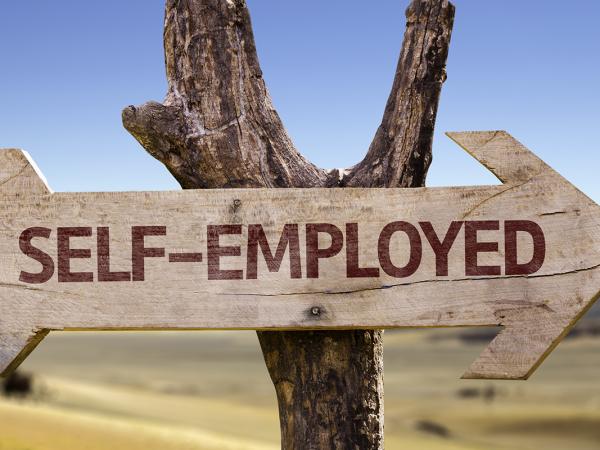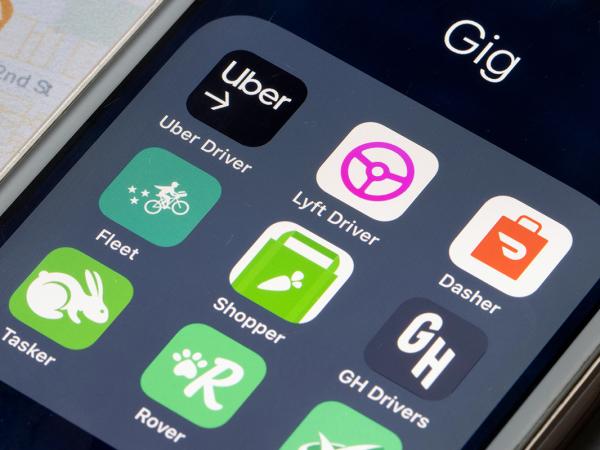Side hustle tax mythbuster
The noise about ‘side hustle tax’ is showing no signs of dying down and we are still seeing incorrect information circulating online about the tax position of people selling items via online platforms. We previously published a flowchart trying to provide clarity on the rules. In this, our third article on the topic, we dispel five of the biggest myths we have seen circulating.

Before reading the content below, you may find it helpful to look at LITRG’s other two articles on the topic.
More side hustle tax help (article 2)
New rules for gig economy workers (article 1)
We have seen the following statements appearing in various places online. Click on each of them to reveal whether it is a myth and if so, what the correct position is.
- There is a new ’30 item tax rule’ if I am selling things online.
-
MYTH.
There is no new 30 item tax rule for individuals, to dictate at what point your activity becomes taxable.
There is a new rule for online platforms: in general the rules from 1 January 2024, require certain online platforms in the gig and sharing economies to collect information about sellers, and from January 2025, report that information to HMRC. However, as we explain here, there is an exception in these new reporting rules, which says where someone makes fewer than 30 sales AND for no more than 2000 euros (approximately £1700) – their information doesn’t need to be reported to HMRC. So that means if you make over 30 sales, the platform will have to send information about you and your sales to HMRC.
But what the platforms need to report and what individuals need to pay tax on, are two separate things. They don’t match exactly so it’s important not to conflate the two sets of rules.
For example, it’s quite possible that the platform could report that Person A has sold 35 bundles of baby clothes to HMRC and for those sales not to be taxable (see below). Conversely it’s quite possible for the platform not to report Person B selling 20 items they have made to sell, which do fall under ‘trading’ and therefore are taxable (again, see below).
You basically need to ignore what the platforms may or may not tell HMRC and concentrate on your own individual tax position. There is guidance and a flowchart on our website to help you work this out. This has been traffic light colour coded to help you understand, at a glance, what tax rules may be relevant to you.
- I can only make £1,000 from selling old items before I have to pay tax
-
MYTH.
You can make more than £1,000 from selling old personal possessions and you should not have to pay tax.
If you are just selling old items to clear some space, or because you no longer want them – this is probably not taxable. This is because the nature of the income doesn’t fall within income tax (it’s not trading nor miscellaneous income) and if the items are low value, it doesn’t fall within Capital Gains Tax.
This essentially means you can make as many sales of your old personal possessions as you like – it’s not taxable and doesn’t use up the trading allowance.
If you are doing something else, for example selling things that you have brought in especially to resell (for example, you are a vintage clothes seller) or you are making things specifically to sell (for example, celebration cakes) - then it’s more like you are running a small business and you will probably be trading for income tax purposes.
This is where the trading allowance comes into play – if you make £1,000 or less gross income over the course of the tax year from trading or miscellaneous activities, then the income could be exempt under the trading allowance full relief rules. This means you don’t have to report it to HMRC and you don’t have to pay tax on it.
We have emphasised ‘to HMRC’ above because if you are on Universal Credit, you may still need to report any income falling within the trading allowance to DWP as the trading allowance is ignored for Universal Credit purposes. We give an example on our trading allowance page.
- Everyone has a £1,000 trading allowance to use against their side hustle income
-
MYTH
You may not be able to use (or want to use) the trading allowance to cover your side hustle income in a few different scenarios, for example, if you are self-employed in your main job.
This is because when considering the £1,000 limit (described in section immediately above) you have to add up all your sources of trading or miscellaneous income. If you add your day-to-day self-employment income (trading income) to your side hustle income (trading or miscellaneous income) you are probably going to come to more than £1,000, which means the trading allowance won’t cover the side hustle income.
In this scenario, you may be able to use the trading allowance in a different way, called partial relief. We explain it all fully with examples on our website. However - remember you do not need to rely on the trading allowance to cover the money you get from selling old personal possessions.
- If I earn more than £1,000 from trading, then I’ll definitely need to pay tax
-
MYTH
Whether or not you’ll need to pay tax, and if so, how much, depends on your wider circumstances.
First of all, you need to work out your net profit and then you’ll have to follow the 4-stageprocess set out in our guidance here.
We provide a basic example of how you work out your net profit and tax (and National Insurance) in our gig economy section. Note that if you have any spare personal allowances to cover some or all of the net profit, the tax due may be nil or low, however you may still need to consider National Insurance (which, historically, has been payable from a lower net profit level). You can find current and past tax rates and allowances on our website.
- If I am trading, then I will need to set up a limited company.
-
MYTH.
You do not need to set up a limited company if you are trading.
Running a limited company is one way of being a business – but not the only way. You can also be a sole trader, for example, which is generally much more straightforward. In some cases, due to the administrative requirements, a limited company is not a suitable for new businesses, particularly if there is only modest income involved.
Remember only individuals can claim the trading allowance!
If you are thinking of setting up a limited company, it is important you understand what it means and whether that is the right thing for you and your business. It can be an expensive mistake if you then have to pay someone to close it down for you and deal with any compliance issues that have cropped up in between. We suggest you start your research by reading our article ‘5 questions to ask yourself before you set up a limited company’.



